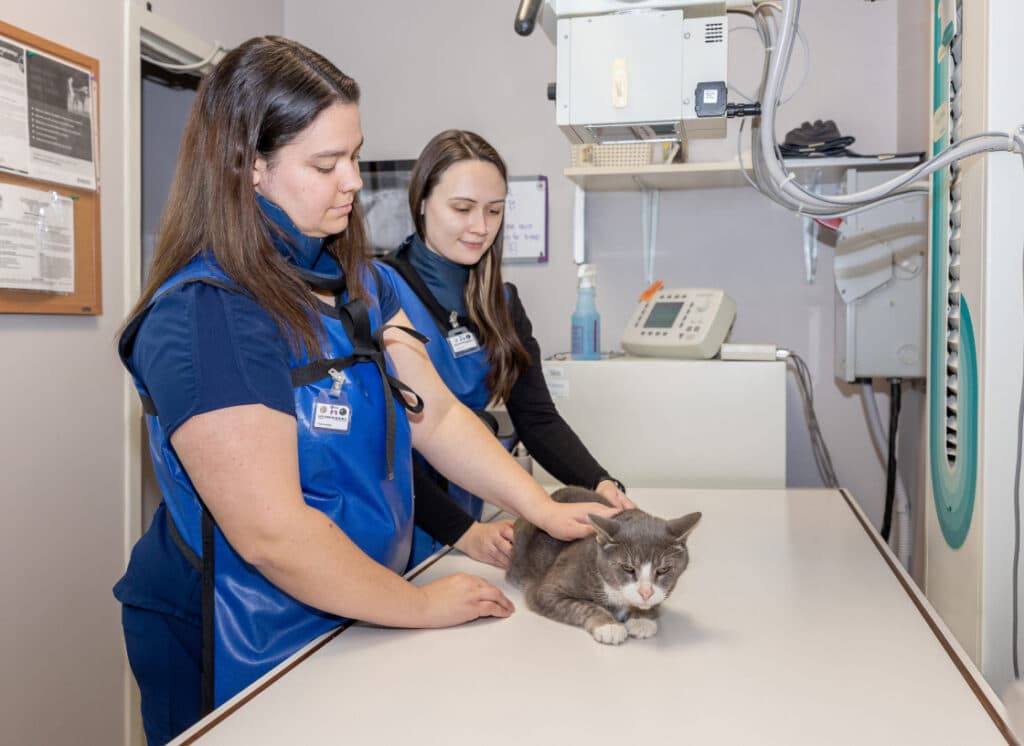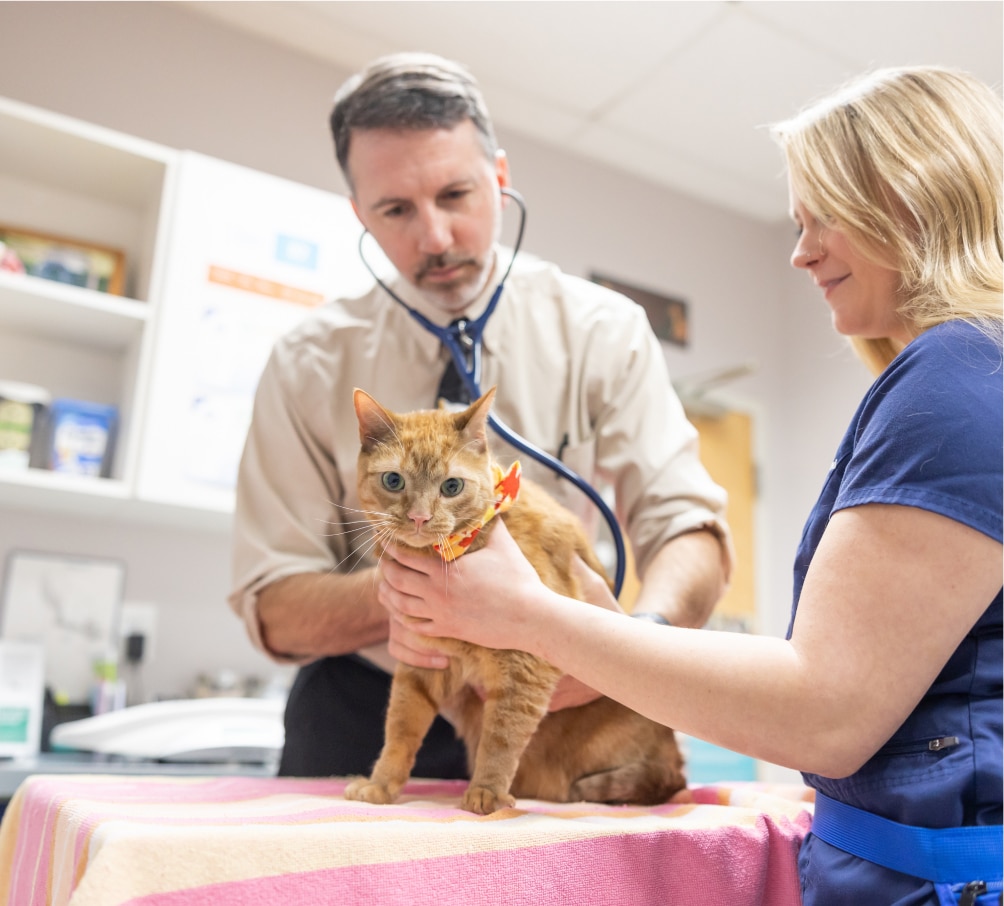Diagnostic Testing
When your pet is sick, it can be difficult to figure out exactly what’s wrong with only the physical examination. Since your pet can’t talk, your veterinarian can’t just ask them where they hurt and what they’re feeling. Instead, we often must turn to diagnostic testing to help determine the cause of your pet’s issues.
At Old Farm Veterinary Hospital, we have a full slate of diagnostic testing procedures available to help your pet. For any we don’t do in house, we refer to our high-quality reference labs, usually with results the next day.
When your pet is ill or it is important to have results right away, we perform testing in house.
Some common diagnostic tests we perform on premises for rapid results include:
- Blood panel: A minimum data base includes a complete blood count (CBC) and metabolic panel. This test looks for signs of illness in your pet’s blood, including screening for anemia, leukemia, kidney problems, liver issues, diabetes, and other diseases and conditions.
- Urinalysis: We check your pet’s urine for signs of disease in the urinary tract, such infection and inflammation, and signs of kidneys disease and diabetes. We may ask you to collect a sample at home. Please use a clean container and do not refrigerate the sample. The fresher it is, the better! If your pet has urinary tract symptoms, please do not allow them to urinate prior to their appointment.
- Digital Radiology: An X-ray can be used for a variety of diagnostic reasons, including checking bones for fractures, examining whether there is abnormal fluid accumulating, looking for foreign bodies, and examining the soft tissues. Digital radiographs allow better quality images and fewer exposures for your pet with less time in the radiology suite. Digital radiographs are easily manipulated and shared with a Board-Certified Radiologist for rapid diagnosis.
- Point of Care Ultrasound: This non-invasive procedure uses sound waves to visualize internal structures in great detail. It allows us to rapidly and accurately diagnosis emergent disease and choose the best treatment. We can check for internal injuries or signs of disease. Ultrasound imaging can also guide sampling procedures.
- Fecal analysis: Your pets’ feces is examined microscopically for infection and parasites.
- Cytology: Many skin problems or growths can be assessed without having to send samples to a pathologist.
- EKG: An electrocardiogram (EKG) is used to monitor your pet’s heart activity and test for certain cardiac diseases.
- Blood Pressure: Hypertension is an increasingly recognized issue with chronic disease in older pets.
- Tonometry: Testing for glaucoma without waiting to see an ophthalmologist can make the difference of preserving your pet’s vision.
Our team of skilled veterinarians and technicians works hard to keep your pet as comfortable as possible using low-stress handling during any diagnostic testing and answers any questions you may have about an individual procedure or the results.


Schedule an Appointment With Us Today!
Your pet’s health and happiness is our priority. Press below to schedule an appointment with our pet care team.

